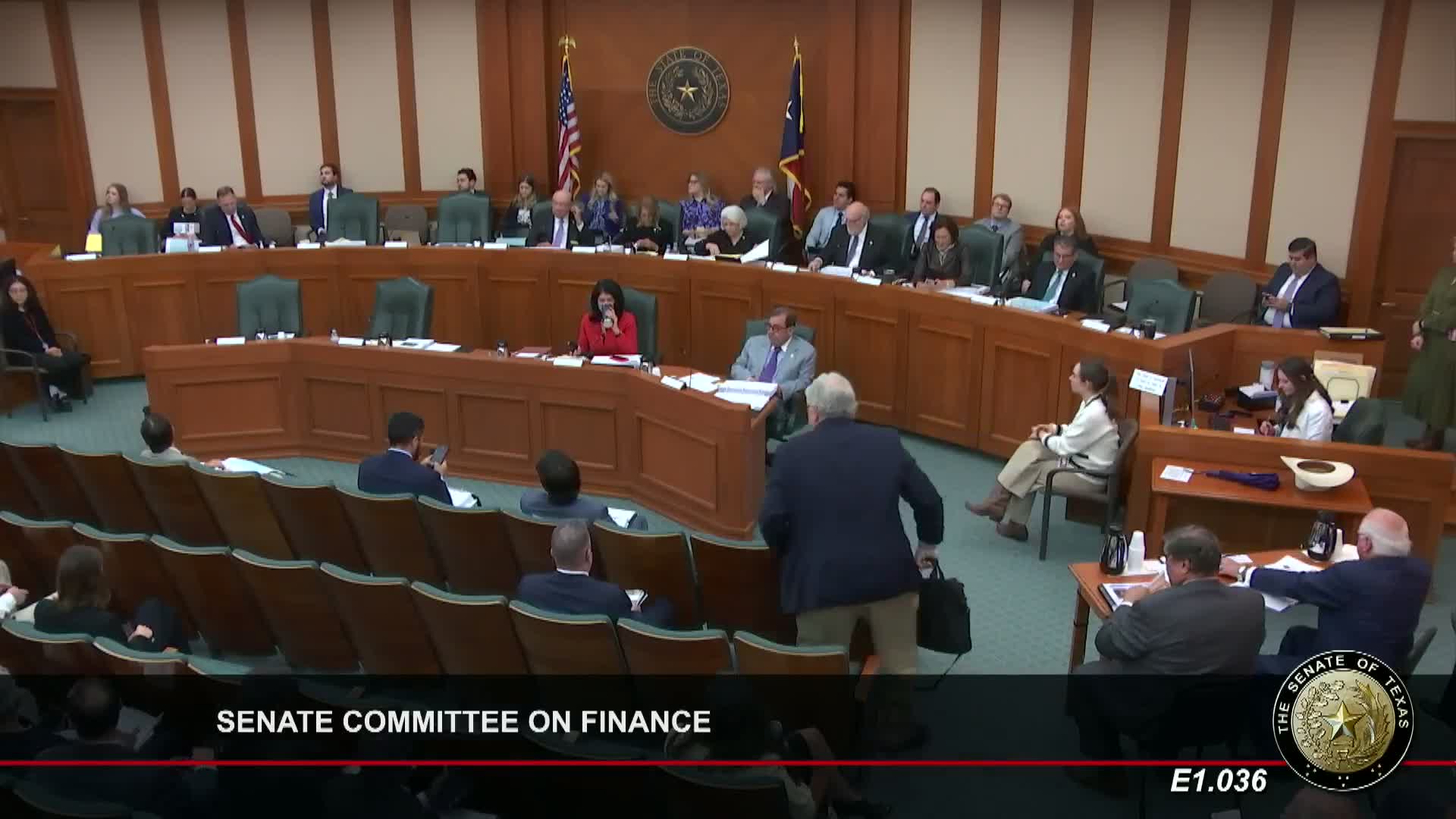Senate panel hears Department of Agriculture budget summary; inspectors, feeding programs and rural health discussed
Get AI-powered insights, summaries, and transcripts
Subscribe
Summary
LBB staff and the Texas Department of Agriculture briefed senators on the department’s 2026–27 budget recommendations, including funding for inspection stations, Texans Feeding Texans, rural health programs, child nutrition and the AgriStress helpline.
Legislative Budget Board staff and Texas Department of Agriculture officials presented the department’s budget recommendations and program priorities during the Senate Finance Committee’s Article 6 review, covering federal fund reductions, inspection‑station funding, nutrition programs and rural health initiatives.
The LBB recommended about $1.8 billion in all funds and 755.2 FTEs for the Department of Agriculture for 2026–27, a modest decline from 2024–25 levels largely attributable to reductions in one‑time federal coronavirus relief and other federal funds. LBB staff and TDA officials described line‑item recommendations and several agency requests that were not included in the baseline proposal.
Rachel Stegall of the Legislative Budget Board summarized the LBB’s recommendations: the packet identifies a $7 million general‑revenue allocation to continue regional agricultural and livestock entry‑point inspection stations established in the prior biennium; $40 million in general revenue for the Texans Feeding Texans program (a $10 million reduction from 2024–25 due to prior one‑time funding); and $13.6 million in all funds for rural health programs, including continued support for a Farmer Mental Health and Suicide Prevention grant and a nursing recruitment stipend program.
TDA Commissioner Sid Miller emphasized the economic role of agriculture in Texas, described the agency’s “Agris Stress” helpline and highlighted initiatives to expand inspection and biosecurity operations. Miller said enhanced roadside inspection stations have increased stops substantially; he asked the committee to consider funding additional FTEs to operate more stations year‑round.
School nutrition, local purchasing and Texans Feeding Texans
LBB and TDA testimony noted a $6.6 million general‑revenue continuation that would provide free breakfast in lieu of reduced‑price breakfast for qualifying students, and that the department has sought capital and facility authority for new inspection facilities not included in the LBB recommendation. TDA representatives highlighted a growth in locally procured food for schools — the department reported about $300 million in local purchases last year — and described the state’s surplus‑product pickup grants that deliver otherwise wasted food to food banks.
Rural health and border inspections
Senators asked about rural health and border inspection capacity. TDA officials said the department funds an Office of Rural Health and rural grant programs, operates five export inspection facilities and coordinates with the U.S. Department of Agriculture on border inspection and import processes. Assistant Commissioner Lena Wilson (food and nutrition) told senators that federal subsidies cover most child nutrition program costs but that some school districts carry unpaid meal debt that local budgets must absorb.
Other requests and program notes
TDA noted several items not included in the LBB recommendation, including agency requests to modify funding authority for certain cost‑recovery programs and an exceptional item for additional inspection facility funding. Commissioner Miller also requested restoration of his agency travel account limit and additional transfer authority to carry agency receipts between biennia to avoid fee increases driven by current sweep rules. The department touted its Go Texan marketing and wine‑trail programs and asked legislators to consider raising a long‑standing $200,000 cap on wine‑promotion receipts to expand marketing support for the state’s wine tourism industry.
What’s next
No committee votes were recorded in the excerpt. Senators and agency staff agreed to follow up with more detailed information about inspection station operations, border inspection capacity at ports such as Laredo, and specific staffing and facility requests as Article 6 proceeds through the budget process.
